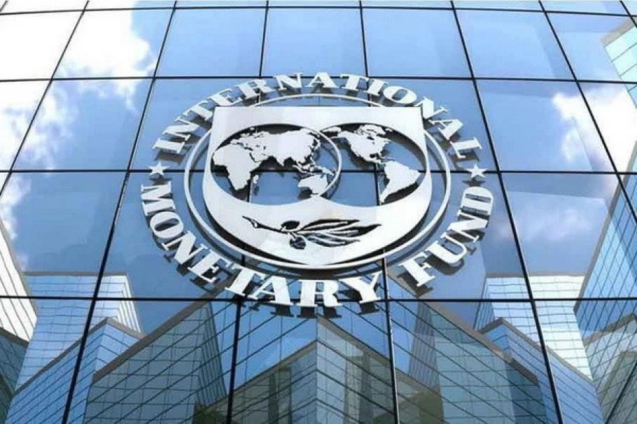The International Monetary Fund (IMF) has outlined in detail, how the global coronavirus pandemic devastated Ghana's economy in 2020.
A press release issued by the Fund on Monday highlighted how the Ghanaian economy, which was growing at a rate of 6.5% in 2019, was badly hit by the pandemic, setting it back to a growth of 0.4, a loss of 6.1%, thus having a telling effect on food prices and poverty rate.
"Ghana was hit hard by the COVID-19 pandemic," the IMF said in its assessment.
"The pandemic had a severe impact on economic activity. Growth slowed to 0.4 percent in 2020 from 6.5 percent in 2019, food prices spiked, and poverty increased. The fiscal deficit including energy and financial sector costs worsened to 15.2 percent of GDP, with a further 2.1 percent of GDP in additional spending financed through the accumulation of domestic arrears."
The statement added: "Public debt rose to 79 percent of GDP. The current account deficit widened slightly to 3.1 percent of GDP as the decline in oil exports was partially offset by higher gold prices, resilient remittances, and weaker imports."
On the Cedi, the IMF assessed that it remained stable, despite the effects due to pragmatic steps by the Central Bank.
"The Ghanaian Cedi remained stable against the US dollar, partly due to central bank intervention, and gross international reserves remained at 3.2 months of imports."
"External and domestic financing conditions tightened considerably at the start of the pandemic, but have improved since, and Ghanar successfully returned to international capital markets for a US$3 billion Eurobond issuance in March 2021."
Encouraging signs of economic recovery
After over a year of devastation, the IMF's assessment has commended Ghana’s economic management for "encouraging signs" towards economic recovery.
"An economic recovery is underway. Growth is expected to rebound to 4.7 percent in 2021, supported by a strong cocoa season and mining and services activity, and inflation remaining within the Bank of Ghana target."
"The current account deficit is projected to improve to 2.2 percent of GDP, supported by a pickup in oil prices, and gross international reserves are expected to remain stable."
"The 2021 budget envisages a fiscal deficit of 13.9 percent of GDP in 2021, including energy and financial sector costs, and a gradual medium-term fiscal adjustment which would support a decline in public debt starting in 2024."
3rd Wave threat
The IMF, however, cautions that the positive outlook is subject to "significant uncertainty, including from new pandemic waves" as well as risks associated with large financing needs, which will increase public debt.
Latest Stories
-
Inlaks strengthens leadership team with key appointments to drive growth across sub-Saharan Africa
15 minutes -
Green Financing: What Ghana’s Eco-startups need to know
20 minutes -
CHAN Qualifiers: Amoah confident of beating Nigeria
20 minutes -
Governments deprioritising health spending – WHO
27 minutes -
Lordina Foundation brings Christmas joy to orphans
27 minutes -
Yvonne Chaka Chaka to headline ‘The African Festival’ this December
27 minutes -
Nigerian man promised pardon after 10 years on death row for stealing hens
31 minutes -
MGA Foundation deepens support for Potter’s Village
52 minutes -
Galamsey: One dead, 3 injured as pit collapses at Nkonteng
1 hour -
Man, 54, charged for beating wife to death with iron rod
2 hours -
MedDropBox donates to UG Medical Centre
2 hours -
Afenyo-Markin urges patience for incoming government
2 hours -
Case challenging Anti-LGBTQ bill constitutionally was premature – Foh Amoaning
2 hours -
Fifi Kwetey: An unstoppable political maestro of our time
2 hours -
Volta Regional ECG Manager assures residents of a bright Christmas
2 hours

